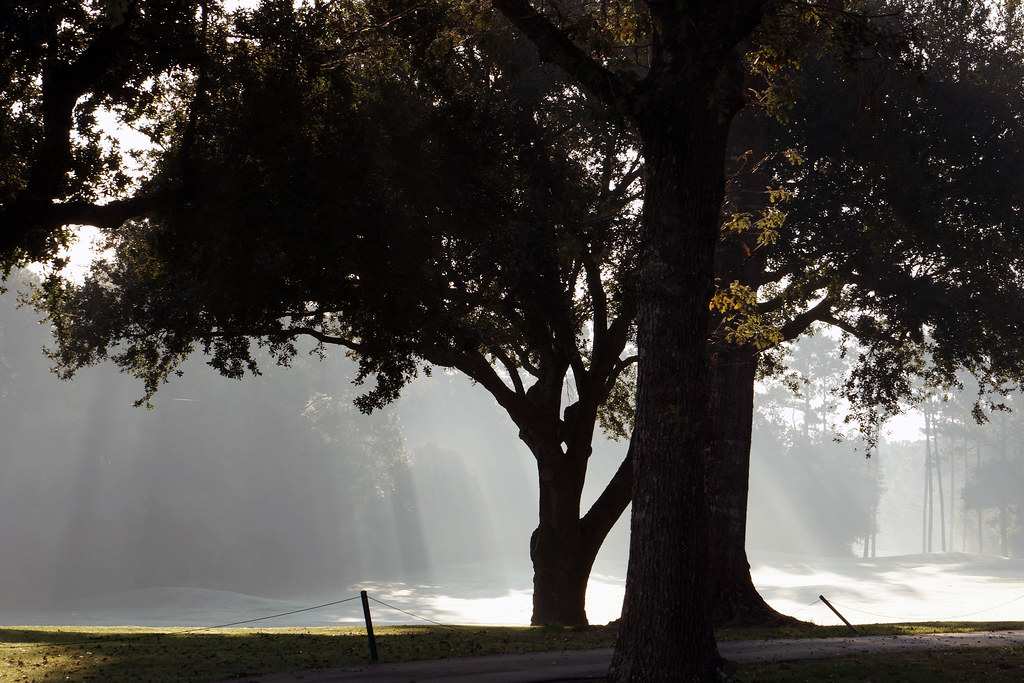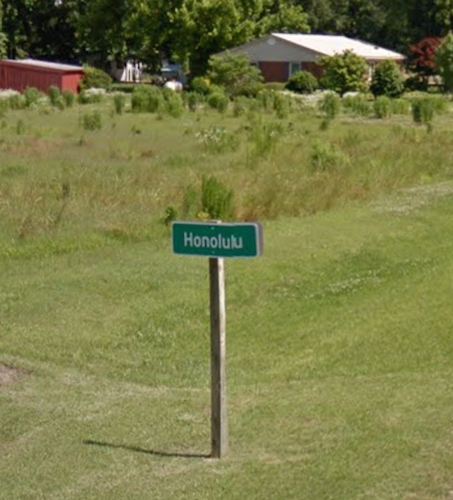Reader Joel expressed mild surprise at a Hawaiian-inspired spot in Utah that I’d referenced. I’m mentioned the town of Loa named by a former resident of Hawaii honoring the towering mountain Mauna Loa. He wondered about “names out of place” in general while I continued to fixate on Hawaii. I complemented his comment with Diamondhead, Mississippi. It’s a locale that crept into articles like Just Keep Turning and Residential Airparks because I have family there.
Diamondhead, Mississippi

Nobody would ever confuse the bayous and tidal estuaries of the Mississippi Gulf Coast with any part in Hawaii. Diamondhead (the Mississippi city) certainly looked nothing like Diamond Head (the iconic volcanic cone in Honolulu spelled with a space between Diamond and Head). First of all Mississippi had a flat shoreline giving way to gentle rolling hills farther inland at Diamondhead. That’s why Hurricane Katrine gave it such a wallop during its epic storm surge (my family remembers).
One needed to understand that Diamondhead arose recently from the minds of developers. They wanted to attract retirees to the Gulf Coast and make a lot of money. The theme served as a marketing gimmick by a company with the same name. They weren’t going to call it Mudbug or Mosquito even though the coast had both in abundance. No, they wanted it to sound like a tropical resort. As the Hancock County Historical Society explained,
“The Federal Highway Act of 1956 created the interstate highway system, and construction began on I-10 through the Mississippi Gulf Coast making Hancock County accessible to people from a wide area… It was in this environment that the Diamondhead Corporation, a large corporation with resort developments in several states, began development operations in coastal Mississippi. It purchased six thousand acres of property adjacent to I-10… The first land sales [in Diamondhead] were recorded in 1970.”
Diamondhead has been an incorporated city only since 2012.
Aloha, Oregon
Right around the same time of my initial Hawaiian fixation I spotted a 12MC viewer who dropped onto the site from Aloha, Oregon. That confirmed I needed to create an article. Aloha sat just west of Beaverton, a suburb of Portland, with approximately fifty-thousand residents. Yet, in spite of its size and population I found precious little information to explain the name. I only saw a brief mention on Wikipedia.
“According to Oregon Geographic Names, the origin of the name Aloha is disputed. Some sources say it was named by Robert Caples, a railroad worker, but it is unknown why the name was chosen. In 1983 Joseph H. Buck claimed that his uncle, the first postmaster, Julius Buck, named the office ‘Aloah’ after a small resort on Lake Winnebago in Wisconsin.”
Indeed, I found an Aloah Beach on Lake Winnebago in Wisconsin. I felt disillusioned, as if maybe Oregon’s Aloha didn’t have anything to do with Hawaii after all.
Honolulu, North Carolina

Honolulu, North Carolina (map) made me feel better. At least the name came from Hawaii sort of, although based on a whim. The Honolulu Star Bulletin, the newspaper for the “real” Honolulu highlighted its North Carolina cousin in a feature article in 2002.
“The hamlet got its name in 1900 when James Witherington, Selba’s husband’s granddad, got the permit to set up a post office. ‘They asked what did they want to call it, and on the spur of the moment, he said, ‘We’ll just call it Honolulu’.’ Witherington said. The family has no idea why the name of a place 4,872 miles away popped into James Witherington’s head more than 100 years ago. No one in the family has ever been to Hawaii, Witherington said. ‘They hardly ever got out of the county’.”
Sometimes I think we wouldn’t have any weird town names without the Post Office.
Kanaka in the Northwestern US
Sometimes actual Hawaiians inspired Hawaiian names on the mainland. Although generally not well know, people from Hawaii worked and settled on the western coast of North America beginning in the early 19th Century. The Hudson’s Bay Company in present-day British Columbia, Washington and Oregon hired them. They also caught “Gold Fever” along with the rest of the world and flocked to California to make their fortunes. Hawaiians had a distinct advantage because stories of gold hit Hawaii faster than anywhere else, as early as June 1848. They could also sail to California a lot faster than easterners could cross prairie and mountain on foot. Many Hawaiians beat the crowds heading to California to stake their claims. So they might more properly be Forty-Eighters instead of Forty-Niners.
Various geographic features in the central California goldfields earned Hawaiian names. One term, Kanaka, a Polynesian word for the native people of Hawaii became particularly popular. Prospectors attached it to mountains, streams, mines, valleys and populated places. The Geographic Names Information System referenced 25 different Kanaka occurrences in California. For example, white water rafters love the well-regarded Class IV rapids of Kanaka Falls on the Middle Fork of the American River (videos). Some of the Hawaiians remained in California. Many more returned home after experiencing their first mainland winter, poorer although wiser.
I’m sure there were other Hawaiian place names on the mainland. I didn’t have any trouble finding the ones I featured.

Leave a Reply